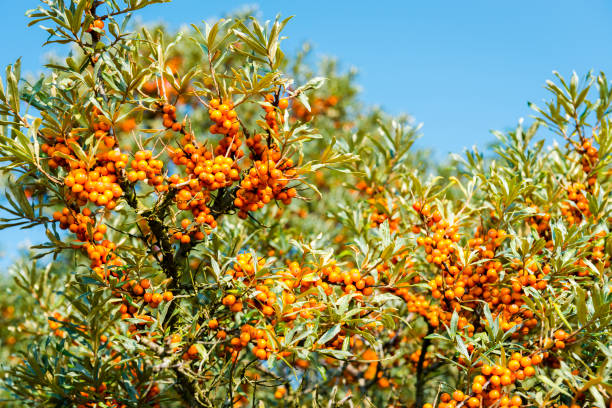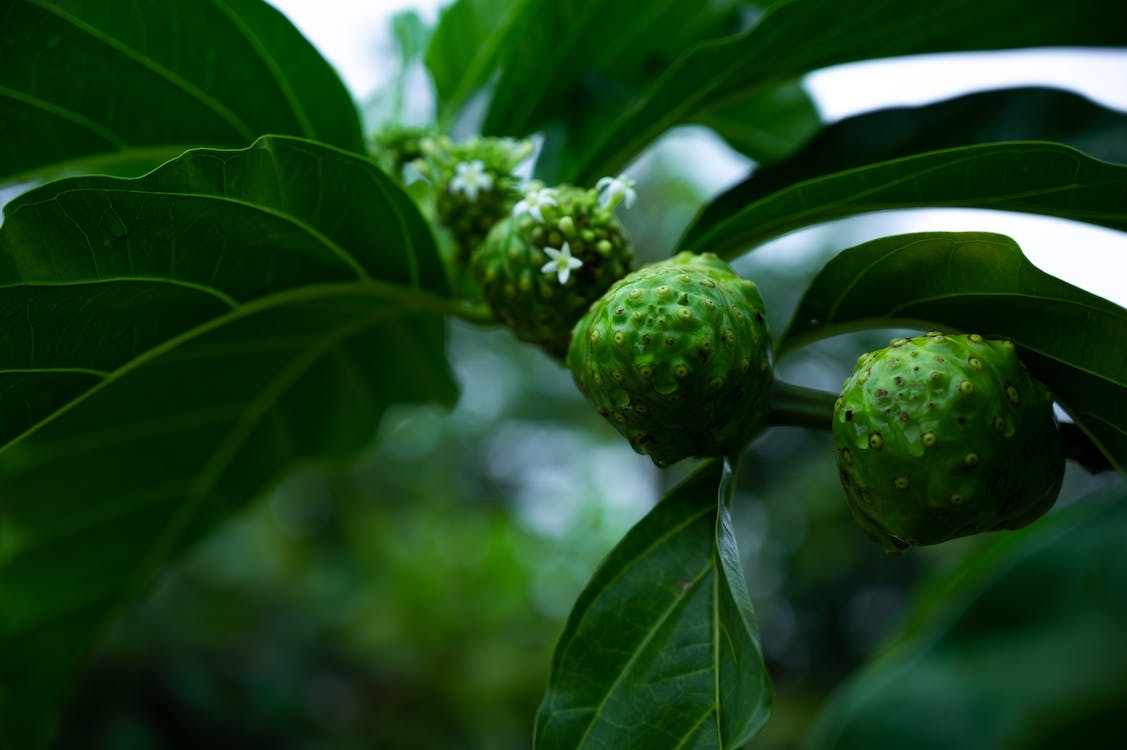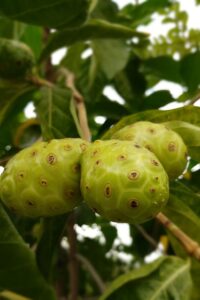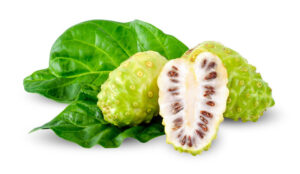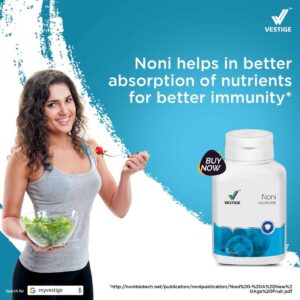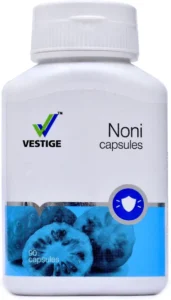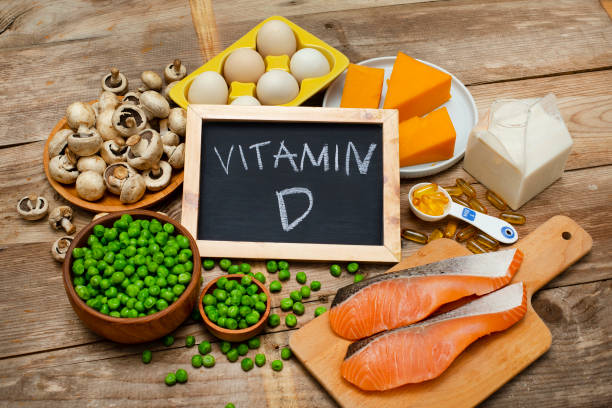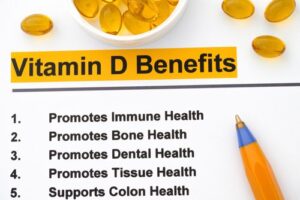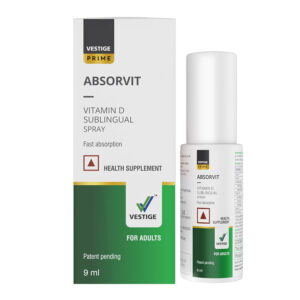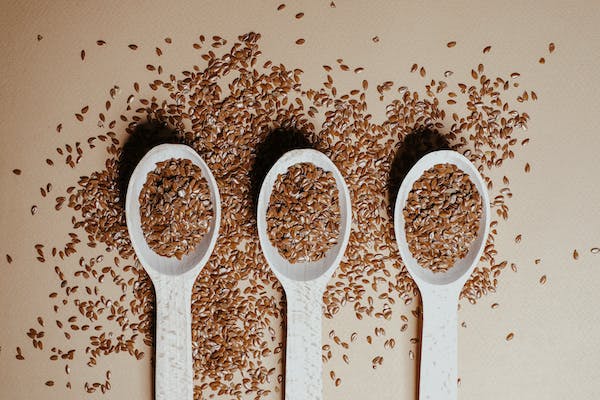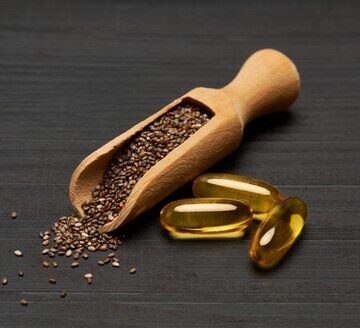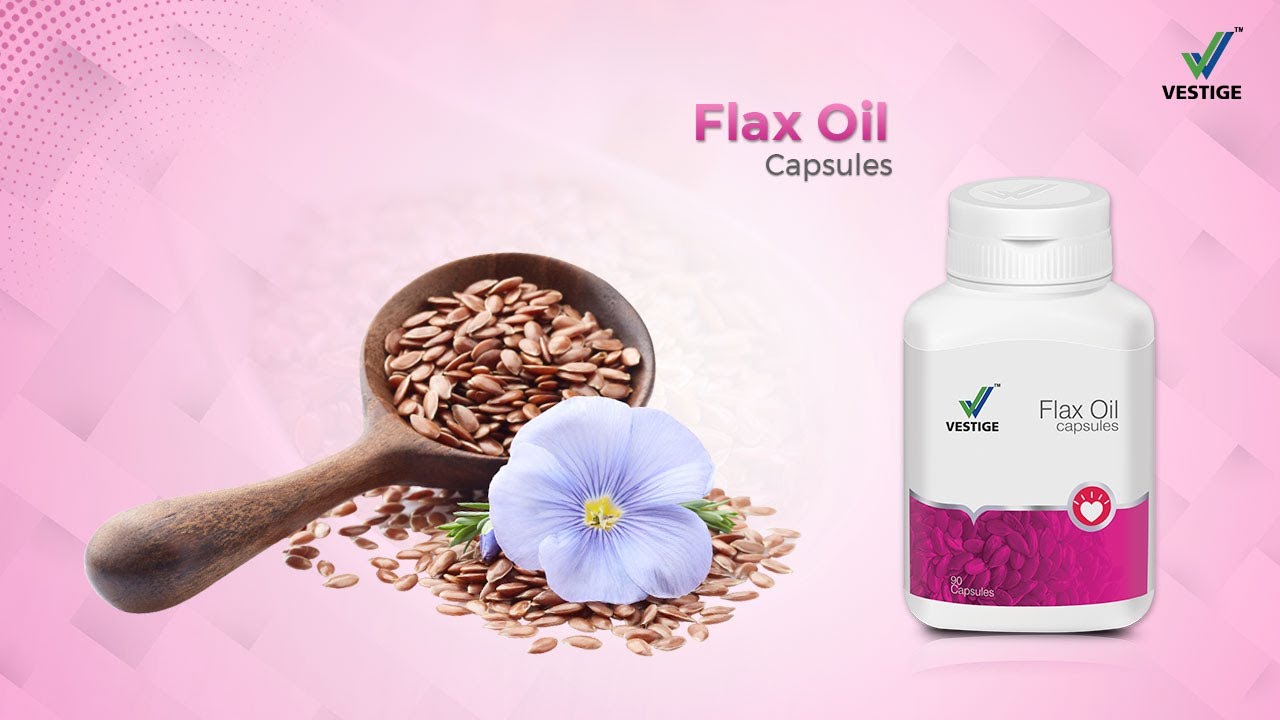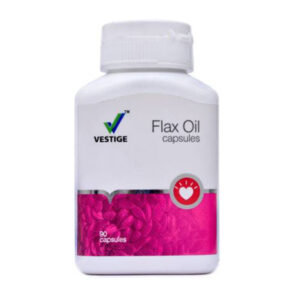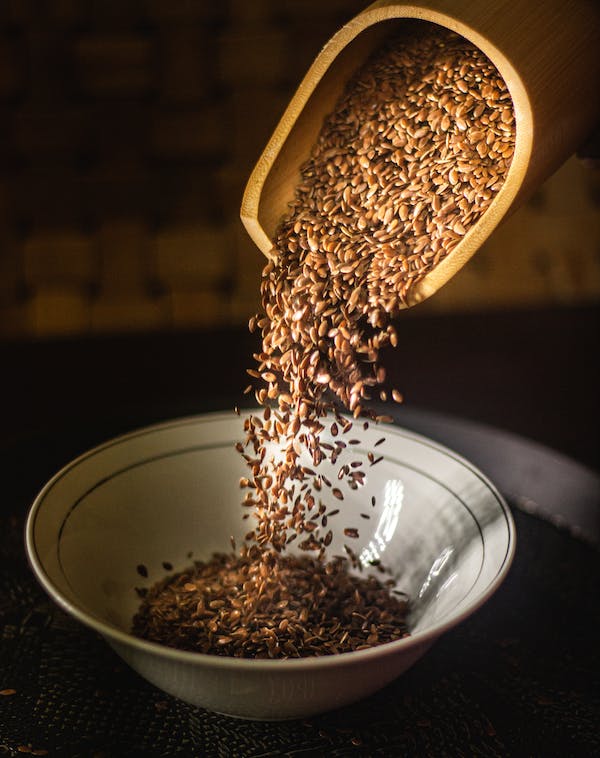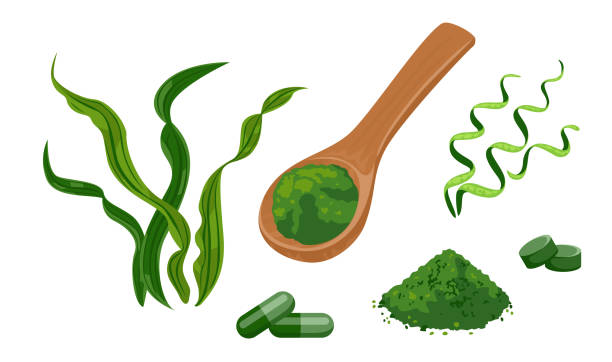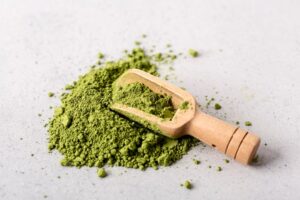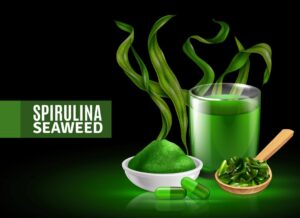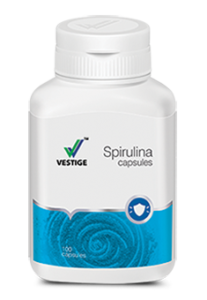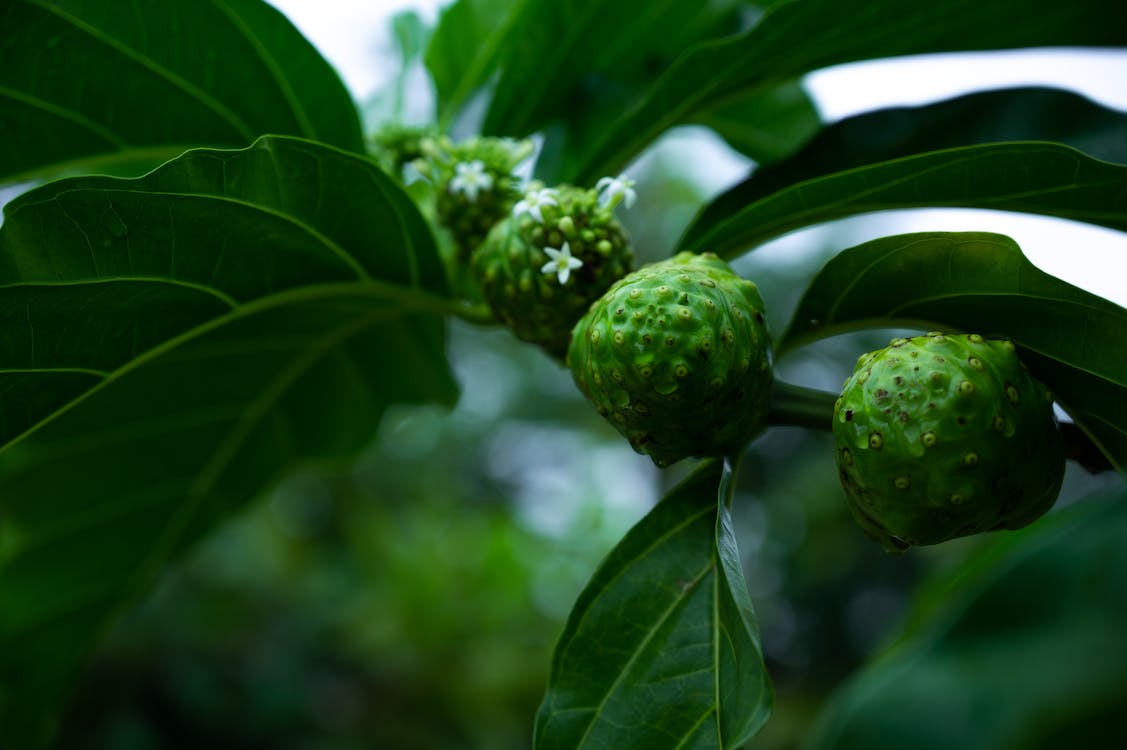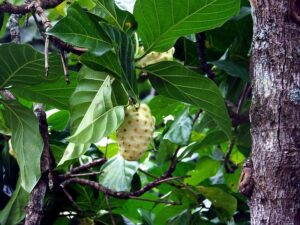परिचय (Introduction)
सुपरफूड की वर्तमान दुनिया में, सी-बकथॉर्न की तरह कुछ ही जड़ी-बूटियां उतनी सामर्थ्यशाली और पौष्टिक होने का दावा कर सकती हैं। सी-बकथॉर्न स्वास्थ्य से भरपूर अद्भुत स्वर्ण बूटी है जो वैज्ञानिक रूप से “हिप्पोफी रैमनॉयडीज” (Hippophae rhamnoides) के नाम से जाना जाता है। यह स्वास्थ्य बढ़ाने की गुणधर्मों के लिए ये सदियों से पूज्य हैं। सीबकथॉर्न केवल एक फल नहीं है; यह शक्तिशाली स्वास्थ्य गुणों और अद्भुत शारीरिक लाभ प्रदान करने वाले पोषक तत्त्वों से भरपूर बेरी है। इस लेख में, हम सीबकथॉर्न की उत्पत्ति, आवास, पोषण सामग्री, स्वास्थ्य लाभ, और सीबकथॉर्न के अन्य विभिन्न उपयोगी पहलुओं की चर्चा करेंगे।
सीबकथॉर्न क्या है? (What is Sea Buckthorn?)
सीबकथॉर्न (हिप्पोफी रैमनॉयडीज”) एक पत्तियों वाला छोटी बूटी या झाड़ी है जिसे साइबेरियन पाइनएपल, सैंड थॉर्न, सी-बेरी, और सैलो थॉर्न भी कहा जाता है। भारत में इसे लेह बेरी, वंडर प्लांट और हिमालयन गोल्ड के रूप में लोकप्रियता से जाना जाता है। यह एक प्राचीन चमत्कारी पौधा है, जिसे इसकी गुणवत्ता, पोषक तत्वों की प्रचूरता, और जैविक गतिविधि के कारण महत्वपूर्ण माना जाता है। सीबकथॉर्न का वानस्पतिक नाम है हिप्पोफी जो हिप्पो (घोड़ा) और फाओस (चमकता) से मिलकर बना है, क्योंकि प्राचीन समय में सीबकथॉर्न को घोड़ों का वजन बढ़ाने और फर का चमकीलापन दिखाने के लिए खिलाया जाता था।
सीबकथॉर्न कहाँ पाया जाता है? (Where is Sea Buckthorn found?)
इसका आवास चीन, भारत, पाकिस्तान, मंगोलिया, रूस, उत्तरी यूरोप, यूक्रेन, और कैनेडा में मिलता है। भारत में, यह हिमालयी क्षेत्र, लद्दाख, लेह, सियाचिन,लाहौल स्पीती में व्यापक रूप से उगाया जाता है। भारत सरकार के तहत काम करने वाली “कंसल्टेटिव ऑफ साइंटिफ़िक एंड इंडस्ट्रियल रिसर्च” (सीएसआईआर) संगठन ने निर्णय लिया है कि सीबकथॉर्न के बेरीज की वाणिज्यिक खेती को बढ़ावा देने के लिए सभी आवश्यक समर्थन प्रदान करेगा। इसका पौधा माईनस चालीस डिग्री तापमान में भी बढ़ता है। इसका रस सियाचिन की ऊचाई में भी जमता नहीं है।
सीबकथॉर्न की शानदार पोषण सामग्री (Superb Nutritional Contents of Sea Buckthorn)
सीबकथॉर्न लगभग 200 विभिन्न पोषक तत्वों और विशेष बायो-सक्रिय घटकों से भरपूर है। इनमें से कुछ हमारे स्वास्थ्य के लिए वास्तव में बहुत अच्छे हैं। सीबकथॉर्न में विटामिन सी एक बहुत महत्वपूर्ण पोषक तत्व है। इसमें कैरोटेनॉइड्स, पॉलीफिनोल्स, फिनोलिक एसिड्स और फ्लेवोनॉइड्स समेत मुख्य बायो-सक्रिय और एंटी-ऑक्सीडेंट घटक होते हैं। सीबकथॉर्न में कुछ प्रकार के वसा, फोटोएस्टेरोल्स, आर्गेनिक एसिड्स, अमीनो एसिड्स, और खनिज भी होते हैं जो स्वास्थ्य के लिए सहायक होते हैं और इसे हमारे स्वास्थ्य के लिए उपयोगी बनाते हैं।
इसके मुख्य घटकों का विवरण निम्न है:
A. विटामिन्स (Vitamins)
विटामिन सी (Vitamin C): सीबकथॉर्न में विटामिन सी का स्तर संतरा से अधिक है जबकि संतरा में यह अत्यधिक मात्रा में मौजूद होता है। यह विटामिन एक स्वस्थ प्रतिरक्षण (Immunity) प्रणाली और चमकती त्वचा के लिए आवश्यक है।
विटामिन ई (Vitamin E): एक प्रबल एंटीऑक्सीडेंट के रूप में फ्री रेडिकल्स से होने वाली क्षति से बचाने में मदद करता है।
विटामिन बी1, बी2, बी6, और बी9 (Vitamin B1, B2, B6, B9): ये सभी विटामिन बी ऊर्जा उत्पादन और समग्र स्वास्थ के लिए महत्वपूर्ण हैं।
विटामिन के (Vitamin K): रक्त स्राव और हड्डी स्वास्थ्य के लिए महत्वपूर्ण होते हैं।
B. खनिज (Minerals):
पोटैशियम (Potassium): स्वस्थ रक्तचाप और हृदय कार्य को बनाए रखने के लिए आवश्यक है।
मैग्नीशियम (Magnesium): मांस पेशी और तंतुओं की वृद्धि के अतिरिक्त हड्डी स्वास्थ्य के लिए आवश्यक है।
आयरन (Iron): रक्त में ऑक्सीजन पहुंचाने के लिए आवश्यक है।
कैल्शियम (Calcium): हड्डी और दन्त स्वास्थ्य के लिए महत्वपूर्ण है।
C. वसा (Fatty Acids):
तत्व सी-बकथॉर्न अनिवार्य वसा तत्वों (Essential Fatty Acids) के अच्छे स्रोत हैं, जिसमें ओमेगा-3 और ओमेगा-6 शामिल हैं, जो विशेष रूप से हृदय और मस्तिष्क के स्वास्थ्य के लिए आवश्यक हैं।
D. फ्लेवोनॉइड्स (Flevonoids):
एंटीऑक्सीडेंट गुणों के लिए प्रसिद्ध पादप यौगिक फ्लेवोनॉइड्स के कई प्रकार यथा क्वेरसेटिन (quercetin) कैम्फेरॉल (kaempferol), इसोरहम्नेटिन (isorhamnetin) आदि सीबकथॉर्न में पाए जाते हैं।
E. कैरोटेनॉइड्स (Carotenoids):
सीबकथॉर्न बेरीज का गहरा भूरा रंग कैरोटेनॉइड्स से आता है, जैसे कि बीटा-कैरोटीन (beta-carotene) और जीआजैंथिन (zeaxanthin)। ये तत्व आंखों के स्वास्थ्य और समग्र प्रतिरक्षण के लिए महत्वपूर्ण हैं।
F. एमिनो एसिड्स (Amino Acids):
सीबकथॉर्न सभी आवश्यक एमिनो एसिड्स का एक दुर्लभ पौध स्रोत है, जो प्रोटीन के निर्माण और विभिन्न शारीरिक कार्यों के लिए महत्वपूर्ण हैं।

सीबकथॉर्न के आश्चर्यजनक स्वास्थ्य लाभ (Amazing Health Benefits of Sea Buckthorn)
सीबकथॉर्न के कई आश्चर्यजनक स्वास्थ्य लाभ होते हैं। इसकी शानदार एंटी-ऑक्सीडेंट गुणों के कारण हानिकारक पदार्थों से नुकसान रोकने में यह मदद कर सकता है। इसमें एंटी-कैंसर, एंटी-वायरल, और एंटी-इन्फ्लैमेटरी गुण होते हैं। इसे उच्च कोलेस्ट्रॉल को कम करने, मोटापा कम करने, त्वचा और बाल की देखभाल करने, मस्तिष्क को सुरक्षित करने, और आपकी जिगर की देखभाल करने में मदद करने में सहायक पाया गया है। यहाँ हम इसके कुछ अद्वितीय लाभों पर चर्चा करेंगे:
A. इम्यून सिस्टम समर्थन (Immune System Support)
सीबकथॉर्न में उच्च विटामिन सी सामग्री आपके इम्यून सिस्टम को सुधारने में मदद करती है, जिससे आप सामान्य बीमारियों के प्रति अधिक प्रतिरोधी बनते हैं।
B. त्वचा स्वास्थ्य (Skin Health)
सीबकथॉर्न को त्वचा पुँर्जिवित करने वाले (Rejuvenating) गुणों के लिए जाना जाता है। इससे विभिन्न त्वचा स्थितियों जैसे कि एक्जेमा, मुँहासे, और रूखापन आदि में मदद की जा सकती है। इसमें मौजूद एंटीऑक्सीडेंट्स फ्री रेडिकल्स को हटा सकते हैं और इस प्रकार बुढ़ापे के दिखने (Ageing) को कम कर सकते हैं, जबकि इसमें मौजूद फैटी एसिड्स त्वचा में मॉइस्चर जोड़ सकते हैं। सीबकथॉर्न में उपलब्ध विटामिन ई और कैरोटेनॉइड्स भी एक स्वस्थ त्वचा के लिए योगदान करते हैं।
C. हृदय स्वास्थ्य (Heart Health)
सीबकथॉर्न में पाए जाने वाले ओमेगा-3 और ओमेगा-6 फैटी एसिड्स सूजन (Inflammation) और कार्डियोवैस्कुलर रोगों के जोखिम को कम करके हृदय स्वास्थ्य की सुरक्षा कर सकते हैं।
D. जिगर स्वास्थ्य (Liver Health)
कुछ अध्ययनों में यह पाया गया है कि सीबकथॉर्न में मौजूद यौगिक (Compounds) जिगर के कार्य को सुधारने में मदद कर सकते हैं।
E. पाचन स्वास्थ्य (Digestive Health)
सीबकथॉर्न को पारंपरिक रूप से पेट की समस्याओं, जैसे कि गैस्ट्राइटिस और अल्सर, को कम करने के लिए इस्तेमाल किया जाता रहा है। यह स्वस्थ गट माइक्रोबायोम (gut microbiome) को बनाए रखने में भी मदद कर सकता है।
F. एंटी-इन्फ्लैमेटरी गुण (Anti-Inflammatory Properties)
सीबकथॉर्न में, फ्लेवोनॉइड्स में शक्तिशाली एंटी-इन्फ्लैमेटरी प्रभाव हैं, जो गठिया जैसी स्थितियों में मदद कर सकते हैं।
G. एंटी-कैंसर गुणधर्म (Anti-Cancer Properties)
सीबकथॉर्न में फ्लेवोनॉइड्स में कई यौगिक्स, जैसे कि क्वर्सेटिन, (एक फ्लेवोनॉइड), कैरोटेनॉइड्स, एंटी-ऑक्सीडेंट, विटामिन ई आदि, के एंटी-कैंसर प्रभाव होते हैं। हालांकि, मानवों पर इस पर और अध्ययन किए जाने की आवश्यकता है।
H. वजन प्रबंधन (Weight Management)
सीबकथॉर्न में विटामिन, खनिज, और एमिनो एसिड्स का संयोजन मेटाबॉलिज्म का सहयोग करता है और वजन प्रबंधन में सहायक हो सकता है।
I. मधुमेह प्रबंधन (Diabetes Management)
कुछ अध्ययन यह सुझाव देते हैं कि सीबकथॉर्न रक्त शुगर स्तरों (Blood Sugar Level) को नियंत्रित करने में मदद कर सकता है, जिससे यह डायबिटीज को प्रबंधित करने में मददगार होते हैं।
J. मेनोपॉज़ के लक्षणों में आराम (Relieves Symptoms of Menopause)
शोधकर्ताओं ने खोजा है कि सीबकथॉर्न मेनोपॉज़ के बाद की महिलाओं के लिए एक अच्छा विकल्प हो सकता है जिन्हें एस्ट्रोजेन का उपयोग नहीं करना है या जिन्हें योनि सुखापन में मदद कर सकता है।
K. दृष्टि समर्थन (Vision Support)
सीबकथॉर्न में मौजूद कैरोटेनॉइड्स (Carotenoids), विशेषकर जीआजैंथिन (Zeaxanthin), ओक्सिडैटिव स्ट्रेस (Oxidative Stress) एवं आयु सम्बन्धी स्थितियों जैसे कि मैकुलर क्षय (Macular Degeneration) आदि से सम्बंधित दृष्टि रोगों में मदद कर सकते हैं।
L. घाव भरना (Wound Healing)
सीबकथॉर्न का उपयोग पुनर्जनन (Regenerative) और एंटी-इन्फ्लैमेटरी (Anti-inflammatory) गुणों के कारण घाव भरने में किया जा सकता है।
M. एंटी-ऑक्सीडेंट शक्ति (Anti-oxidant Power)
सीबकथॉर्न एंटीऑक्सीडेंट का उत्कृष्ट स्रोत है जो फ्री रेडिकल्स का सामना करता है, अनौपचारिक बीमारियों के जोखिम को कम करता है और समग्र स्वास्थ्य को बढ़ावा देता है।
N. बाल सेवा (Hair Care)
सीबकथॉर्न में थोड़ी सी लेसिथिन (lecithin) है, जो एक प्रकार की चर्बी है। यह आपके बालों से अतिरिक्त तेल को हटा सकता है। यह उन बालों को भी ठीक कर सकता है जो क्षतिग्रस्त हो गए हैं और उन्हें फिर से जीवंत बना सकता है।
O. कृषि और अर्थव्यवस्था को बेहतर बनाएं सीबकथॉर्न (Improve Agriculture and Economy)
सीबकथॉर्न कृषि में सुधार के क्षेत्र में क्रांति ला सकता है, क्योंकि इसमें भूमि को उर्वर्तनीय (fertile) बनाने की महत्वपूर्ण क्षमता है। इसे उगाने वाले कृषकों के लिए यह एक शक्तिशाली आय का स्रोत बनाया जा सकता है। भारत सरकार और जम्मू-कश्मीर और हिमाचल प्रदेश की राज्य सरकार ने इसे विकसित करने के लिए कदम उठाए हैं।
सीबकथॉर्न के विभिन्न रूप (Different Forms of Sea Buckthorn)
सीबकथॉर्न को विभिन्न रूपों में लिया जा सकता है, प्रत्येक रूप अपने आप में विशेष लाभों का वाहक होता है। पोषण से भरपूर इस फल को अपने आहार में शामिल करने के कुछ सबसे सामान्य रूप निम्न हैं:
A. ताजा बेरीज़ (Fresh Berries)
आप सीबकथॉर्न बेरीज़ को कच्चे खा सकते हैं, हालांकि वे अक्सर काफी खट्टे होते हैं। इन्हें सामान्यत: स्मूदीज़, सलाद में या दही आदि के साथ टॉपिंग के रूप में इस्तेमाल किया जाता है।
B. सीबकथॉर्न जूस (Sea Buckthorn Juice)
सीबकथॉर्न जूस एक लोकप्रिय विकल्प है, जो फल के पोषण से युक्त होने का सुविधाजनक तरीका प्रदान करता है, इसे बिना कच्चे बेरीज़ की खटास के सेवन किया जा सकता है।
C. सीबकथॉर्न तेल (Sea Buckthorn Oil)
सीबकथॉर्न तेल को इसके कई त्वचा लाभों के लिए इस्तेमाल किया जाता है। इसे स्थानीय रूप से लगाया जा सकता है या सामग्री के रूप में सार्वभौमिक स्वास्थ्य के लिए इस्तेमाल किया जा सकता है। यह सामान्यत: कैप्सूल्स में या एक आहार सप्लीमेंट के रूप में सेवन किया जाता है।
D. सूखी सीबकथॉर्न सूखी (Dried Sea Buckthorn)
सीबकथॉर्न बेरीज़ स्वादिष्ट और पौष्टिक नाश्ता हो सकती हैं। इन्हें बेकिंग में या अनाज (सीरियल्स) और सलाद के लिए टॉपिंग के रूप में भी इस्तेमाल किया जा सकता है।
F. सीबकथॉर्न चाय (Sea Buckthorn Tea)
सीबकथॉर्न चाय इस फल के लाभों का आनंद लेने का एक शांति दायक और स्वादिष्ट तरीका है। इसे सामान्यत: अन्य जड़ी-बूटियों और मसालों के साथ इंफ्यूज़ किया जाता है अधिक स्वाद के लिए।
G. सीबकथॉर्न पाउडर (Sea Buckthorn Powder)
सीबकथॉर्न पाउडर को स्मूदीज़, दही या अन्य रेसिपी के साथ मिलाकर लिया जा सकता है जो पोषण को बढ़ाने या सप्लीमेंट के रूप में इस्तेमाल किए जाने का एक सुन्दर विकल्प है।
वेस्टीज प्राइम सीबकथॉर्न (Vestige Prime Sea Buckthorn)
सीबकथॉर्न (हिप्पोफे र्हैम्नॉयडेस) एक गुछे भरी झाड़ी है जो लम्बे समय से परंपरागत चिकित्सा में स्वास्थ्य को पुनर्स्थापित करने के लिए इस्तेमाल होता रहा है। इस चमत्कारिक फल को वंडर बेरी (Wonder Berry) या लेह बेरी (Leh Berry) के रूप में भी जाना जाता है। इसे सदयों से चिकित्सात्मक उद्देश्यों और अन्य स्वास्थ्य लाभों के लिए इस्तेमाल किया जाता रहा है। सीबकथॉर्न एशिया, यूरोप और रूस में व्यापक रूप से पाया जाता है और हाल ही में कैनेडा में भी इसे खोजा गया है। भारतवर्ष में ये लेह, लद्दाख, लाहौल स्पीती, हिमालय और हिमाचल की घाटियों में बहुतायात से पाया जाता है। सीबकथॉर्न में कैरोटेनॉइड्स, टोकोफेरोल्स, फ्लेवोनॉइड्स, लिपिड्स, और एस्कोर्बिक एसिड (विटामिन सी) सहित 190 से अधिक बायोएक्टिव कंपाउंड्स होते हैं। यह मुख्य रूप से ओमेगा-3, 6, 7 और 9 फैटी एसिड्स (पमिटोलेइक एसिड) का सबसे समृद्ध स्रोत भी है।”
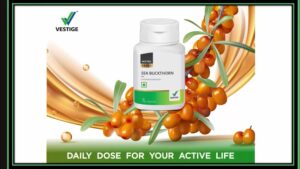
सक्रिय घटकों के लाभ (Benefits of Active Ingredients)
- विटामिन्स नींद को सुबह तक बनाए रखने में मदद करके कम ऊर्जा और मांसपेशियों की तनाव जैसे थकावट के सामान्य लक्षणों को कम करने में मदद करते हैं। विटामिन सी अन्य पोषण सामग्रियों के साथ सिरदर्द और चक्कर को कम करने में मदद करता है और मानसिक ध्यान को बढ़ाता है।
- विटामिन ए, विटामिन ई, और ओमेगा-7 फैटी एसिड्स को त्वचा के लिए आवश्यक पोषण माना जाता है क्योंकि वे ऊतक और कॉलेजन पुनर्जनन (Regeneration) को बढ़ावा देते हैं।
- त्वचा की झुर्रियों को कम करने और त्वचा के बूढ़ेपन (Ageing) को धीमा करने में मदद करता है।
- ऐसा माना जाता है कि सीबकथॉर्न गैस्ट्रिक अम्ल उत्पादन को सामान्य करने में मदद करता है। यह गैस्ट्रिक अम्ल के दुष्प्रभाव से मयूकस झिल्ली की सुरक्षा करता है और गैस्ट्रोज़ीसोफेजियल रिफ्लक्स रोग (जीईआरडी) एवं हृदयज्वर के लक्षणों को दुरुस्त करता है।
उत्पाद विवरण (Product Details)
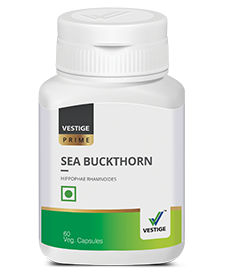
नाम: वेस्टीज प्राइम सी-बकथॉर्न
ब्रांड: अस्यूर (Assure)
रूप: कैप्सूल
मात्रा: 60 कैप्सूल्स
शेल्फ लाइफ: 24 महीने के अन्दर सबसे अच्छा
शाकाहार/मांसाहार: शाकाहार
उत्पाद का देश: भारत
कंपनी: वेस्टीज मार्केटिंग प्राइवेट लिमिटेड, ओखला, नई दिल्ली
सी-बकथॉर्न के प्रतिक्रियाएँ (Side Effects)
सी-बकथॉर्न का सुरक्षित रूप से लंबे समय से उपयोग किया जाता रहा है। इसके बहुत कम प्रतिक्रियाएँ (साइड इफेक्ट्स) देखी गई हैं। लेकिन एक पुराने अध्ययन में, कुछ लोगों ने बताया है कि उन्हें इसे तीन महीने से अधिक समय तक लेने के बाद कुछ पाचन समस्याएँ और जोड़ों में दर्द महसूस हुआ। हालांकि इसके सेवन में कोई विशेष सावधानी की आवश्यकता नहीं है फिर भी किसी भी समस्या के प्रकट होने पर एक हेल्थकेयर प्रोवाइडर या चिकित्सक से अवश्य सलाह लेनी चाहिए।
सावधानियाँ (Precautions)
सी-बकथॉर्न किसी विशेष दवा के साथ प्रभावित हो सकता है, विशेषकर उन दवाओं के साथ जो रक्त के थक्के जमाने वाले या एंटीप्लेटलेट दवाएँ हों। यदि आप कोई भी दवाएँ ले रहे हैं, तो अपने आहार में सी-बकथॉर्न जोड़ने से पहले एक हेल्थकेयर पेशेवर (डॉक्टर) से परामर्श करें। गर्भवती और स्तनपान करा रही महिलाएं अपने आहार में सी-बकथॉर्न को शामिल करने से पहले अपने चिकित्सक से अवश्य परामर्श करें।
निष्कर्ष (Conclusion)
सीबकथॉर्न एक प्राकृतिक उपहार है, जिसमें पोषण और स्वास्थ्य लाभ से सम्बंधित सभी आवश्यक सामग्री मौजूद होता है। आपकी इम्यून सिस्टम को बढ़ाने से लेकर आपकी त्वचा की चमक को बरकरार रखने तक के लिए यह अद्वितीय फल एक समृद्ध स्रोत प्रदान करता है। चाहे आप इसे अपने प्राकृतिक रूप में, जूस, तेल, या पाउडर के रूप में लेना चाहें, सीबकथॉर्न स्वस्थ आहार की भरपूर सामग्री प्रदान है।
ध्यान रखें किसी भी सुपरफूड की तरह, सीबकथॉर्न को समझदारी से अपने भोजन में शामिल करना और इसका भरपूर लाभ उठाना आवश्यक है। तो, क्यों ना हम इस प्राचीन ज्ञान को अपनाकर सीबकथॉर्न को ‘पवित्र फल’ के रूप में स्वस्थ जीवनशैली का हिस्सा बनाएं? यदि आपकी कोई कोई विशिष्ट स्वास्थ्य समस्या है या आप दवा ले रहे हैं, तो अपने हेल्थकेयर प्रोफेशनल (डॉक्टर) से अवश्य परामर्श करें।
स्रोत/ सन्दर्भ (Sources/References)
- https://en.wikipedia.org/wiki/Hippophae
- Singh B, Peter K.. Indian sea buckthorn. New age herbals.Singapore: Springer; (2018). p. 29–54. 10.1007/978-981-10-8291-7_3 [CrossRef] [Google Scholar]
- https://www.ncbi.nlm.nih.gov/pmc/articles/PMC9763470/
- https://eng.kisanofindia.com/latest-news/sea-buckthorn-berry-commercial-cultivation-of-himalayan-berry-will-start-soon-in-ladakh/
- https://www.healthline.com/nutrition/sea-buckthorn-oil
- https://www.verywellhealth.com/the-benefits-of-sea-buckthorn-89947
- https://www.myvestige.com/Images/DownloadPdfFile/English/HealthGuide-Jul23/12/
कानूनी अस्वीकृति (Legal Disclaimer):
इस वेबसाइट पर दी गई जानकारी केवल विषय वस्तु (उत्पाद) को समझने और सीखने के उद्देश्यों के लिए है और यह किसी भी चिकित्सा सलाह का विकल्प नहीं है जो एक स्वास्थ्य पेशेवर से मिली हो। क्योंकि हर किसी की आवश्यकताएँ भिन्न हो सकती हैं, इसलिए यह महत्वपूर्ण है कि आप अपने डॉक्टर से मिलकर जाँचें कि यहाँ दी गई जानकारी आपकी परिस्थितियों के लिए उपयुक्त है या नहीं।
healwellbeauty.com पर अपने पर उल्लेखित उत्पादों के आपूर्तिकर्ता इसको सुनिश्चित करने के लिए जिम्मेदार हैं कि उनके उत्पाद की जानकारी एवं गुणवत्ता सटीक हो। आपको जाँच पड़ताल कर इन उत्पादों का सुरक्षित और कानूनी तरीके से उपयोग करना चाहिए और किसी भी गैरकानूनी गतिविधियों से बचना चाहिए। वास्तविक उत्पाद, पैकेजिंग, सामग्री, और डिज़ाइन में इस लेख में दिखाए जाने वाले विवरण से अधिक या भिन्न विवरण हो सकते हैं, जैसे कि पोषण सूचना, कथन, उपयोग निर्देश, चेतावनियाँ और अस्वीकृतियाँ सहित।
हम सुझाव देते हैं कि किसी भी उत्पाद का उपयोग करने से पहले आप उत्पाद का लेबल अवश्य पढ़ें और healwellbeauty.com पर प्रदान की गई जानकारी पर पूरी तरह से निर्भर न करें। अपने स्वास्थ्य योजना या उपचार में किसी भी उपयोग या बदलाव करने से पहले अपने डॉक्टर या स्वास्थ्य पेशेवर के साथ इसपर विमर्श करना आवश्यक है। वे आपको आपकी विशिष्ट आवश्यकताओं के अनुरूप सर्वोत्तम चिकित्सा प्रदान कर सकते हैं।
हम उन सभी प्रभावों, हानियों, दावों, क्षतियों, या चोटों के लिए कदापि जिम्मेदार नहीं हैं जो किसी आपूर्तिकर्ता द्वारा आपको बेचे जाने वाले उत्पादों के गलत, गुणवत्ताहीन या गैरकानूनी उपयोग से हो सकते हैं।
© 2023 healwellbeauty.com के सर्वाधिकार सुरक्षित।
